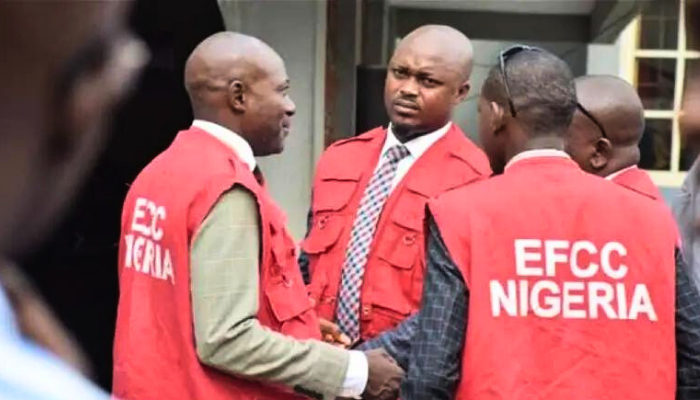More than 70% of financial crimes in Nigeria are caused by banks–EFCC
The Economic and Financial Crimes Commission (EFCC) has said that 70 percent of financial fraud in Nigeria were carried out in the banking sector.
Idowu Apejoye, the director of Internal Audit, EFCC, stated this during the 2023 Annual Retreat and General Meeting of the Association of Chief Audit Executives of Banks in Nigeria.
Apejoye, who represented Ola Olukayode, EFCC chairman, said trends of financial fraud have continued to spread more widely in recent years coupled with corporate fraud being experienced in Nigeria.
She said, “Broadly speaking, banking fraud in Nigeria is both inside and outside related. The inside related fraud comprises outright selling of customers’ deposits, authorising loan facilities, forgery and several other kinds of unhealthy and criminal practices.
“The outsider related ones include hacking, ATM fraud, conspiracy, among others. And then the absurd one is when both collaborate, that is collaboration among the bankers and the outsider.
“That one is the one that is really absurd because when you do that, that means you are selling out the system. It is estimated that about 70 per cent of financial crimes in Nigeria are traceable to the banking sector, this scenario is disturbing and unacceptable.”
She charged the audit executives to use the system of checks and balances, to ensure that no one person has control over all parts of financial transactions in the bank.
According to her, it has become imperative for chief audit executives to consider how the risk of fraud is managed across the organization and assess the fraud risk exposure periodically.
“The risk of fraud should be included in the audit plan and each audit assignment to evaluate the adequacy of anti-fraud controls put in place.
Read also: Ibeto case file reassigned to new judge, as EFCC absence stall hearing
“Some have shown that organizations are reporting more experience of fraud than in previous years and that three out of four organizations have uncovered frauds.
“They should ensure that transactions are protected against fraud by putting in place modern checks to ensure that depositors’ funds and investments are secured,” she said.




